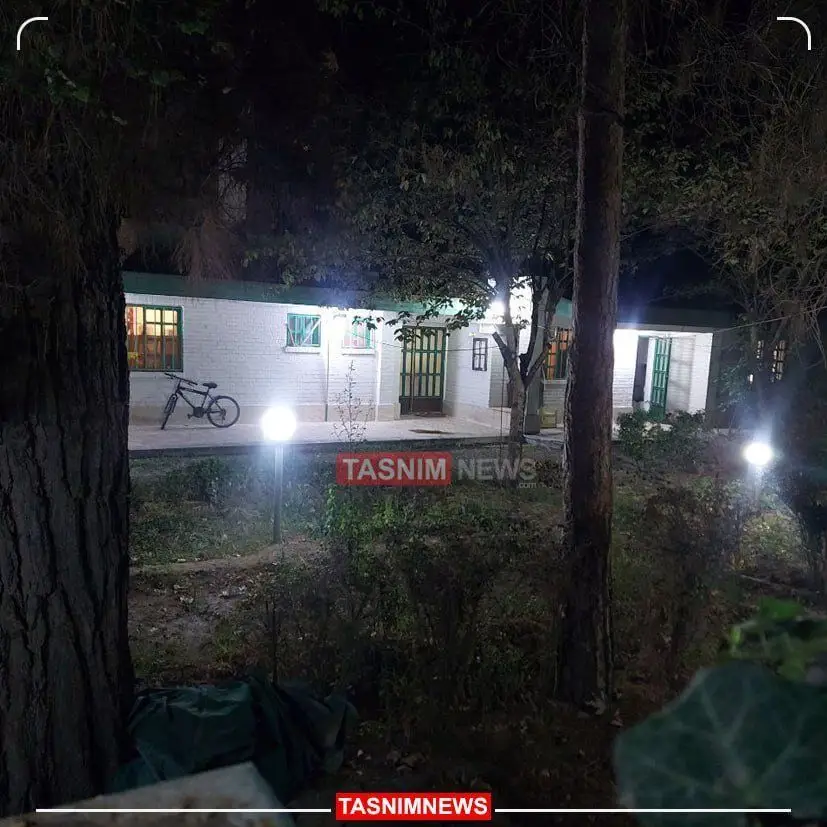iranintl – The gruesome murder of celebrated Iranian director Dariush Mehrjui and his wife at their home near Tehran has caused shock in Iran with speculation abounding about the case.
Mehrjui and his wife, Vahideh Mohammadifar, a screenwriter and costume designer, were discovered brutally mutilated in their own home in the Fardis district of Karaj, located approximately 30 kilometers west of the capital, Tehran, on Saturday night.
According to Faraz Daily news website, the perpetrators cut the throats of the pair and broke their arms and legs, and inflicted severe injuries on them. Mehrjui’s head was clobbered with a blunt object and his wife was almost beheaded. Mohammadifar’s arm was also bent from the elbow to the back, and her wounds were deeper, leading the daily to the conclusion that the attackers had a deeper animosity towards his wife.
Mohammadifar had recently reported a confrontation with an apparent burglar outside their home and had received direct threats from the unidentified individual wielding a knife.
Information obtained by Iran International reveals that the Mehrjui couple had been threatened with death multiple times by unidentified individuals in recent days. Although Mehrjui had reported these threats to the police on multiple occasions, the police did not take them seriously.

Tasnim news agency, affiliated with the Revolutionary Guards, reported that despite Mohammadifar’s social media posts about the threats, the family had not officially filed a complaint with the police. Nasser Khaki, the town’s prosecutor, rejected initial reports about beheadings, stating, “This couple were killed due to suffocation, severe bodily blows, and sharp bodily injuries, presumably from a knife.”
Khaki claimed that the murders happened between 9pm and 10pm, adding, “We know that the murders likely occurred after opening the house’s safe, and that other signs of theft were also evident, and even Mohammadifar’s gold jewelry was taken from her hands.”
According to Mona, the daughter who discovered her parents dead, her father had talked to her on the phone at 8.50pm, but when she arrived home at 10.25pm her parents were dead.
In an Instagram post that was apparently published several months ago, Mohammadifar claimed that the burglar who threatened her with a knife had a non-Iranian accent. This detail has led to speculation online suggesting that the perpetrators might be Afghan migrants who live in large numbers in the area.
According to Fars news agency, another IRGC-linked media outlet, four suspects have been arrested for the murder case so far, but none of the detained individuals were foreigners. “Given the nature of the crime and its violence, there is a possibility of personal vendetta. It’s possible that the partial theft of gold and mobile phones was carried out with the aim of disguising the true motives,” the agency claimed.
There is a conspiracy theory circulating online that the murders are intended to exploit the growing concern about the increasing number of Afghans in Iran and the reported violence, both by them and against them. Mohammadifar mentioned in another Instagram post that she was accused of racism because she complained about being threatened by a foreigner.
Another theory circulating online claims the murders were the continuation of the politically motivated serial assassinations – also known as Chain murders of Iran, a series of 1988–98 murders and disappearances of Iranian dissident intellectuals.
Mehrjui’s notable stance against censorship and his vocal opposition to security measures imposed on Iranian cinema were well-documented. In a video message addressing the cancellation of the screening of his film “La Minor” (A Minor), he asserted, “I can no longer endure this. I will mobilize and, alongside my team, stage a protest at the Ministry of Culture. I am ready to fight.”
Fans, friends, and coworkers of Mehrjui have expressed their sadness on social media, remembering his work as a pivotal figure in Iran’s film new wave during the early 1970s.
“We have just learned of the tragic death of Iranian film director Dariush Mehrjui and his wife, both brutally murdered by thieves,” said Jean-Marc Thérouanne, the director of the Vesoul International Film Festival of Asian Cinema in France, in a statement. He noted that several of Mehrjui’s movies were screened at Vesoul.
In 1959, Mehrjui moved to the United States to study at the UCLA’s Department of Cinema. He studied there under Jean Renoir. He received many awards, including a Silver Hugo from the Chicago International Film Festival in 1998 and a Golden Seashell at the San Sebastián International Film Festival 1993. Most of Mehrjui’s films are inspired by literature and adapted from Iranian and foreign novels and plays.
In 1959, Mehrjui moved to the United States to study at UCLA’s Department of Cinema. He studied there under French cinema giant Jean Renoir. He received numerous awards, including a Silver Hugo from the Chicago International Film Festival in 1998 and a Golden Seashell at the San Sebastián International Film Festival in 1993. Most of Mehrjui’s films are inspired by literature and adapted from Iranian and foreign novels and plays.
 Shabtabnews In this dark night, I have lost my way – Arise from a corner, oh you the star of guidance.
Shabtabnews In this dark night, I have lost my way – Arise from a corner, oh you the star of guidance.



